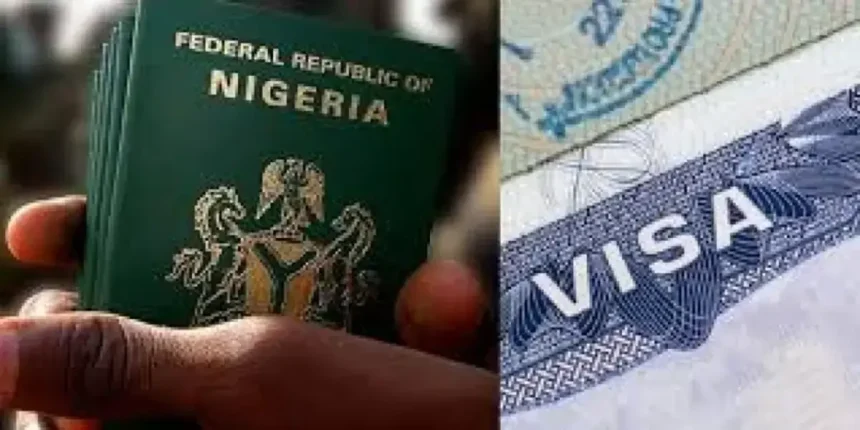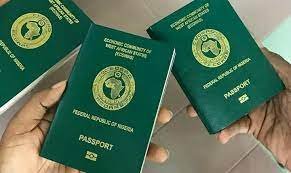Nigeria Responds as U.S. Imposes Social Media Disclosure Rule for Visa Applicants

The United States government has announced that all Nigerian applicants seeking U.S. visas must now disclose their social media usernames and handles from the past five years as part of the visa application process. This new rule applies to every non-immigrant visa category and is aimed at strengthening security checks by giving U.S. consular officers access to applicants’ online footprints.
The U.S. Requirement
According to the U.S. Mission in Nigeria, failure to disclose this information while filling out the DS-160 visa application form could result in immediate visa denial and render the applicant ineligible for future consideration. The policy, first introduced in 2019 under the Trump administration, has now been fully enforced across all categories of visas, including tourist, student, and work visas.
Applicants are required to list every username they have used across social media platforms within the last five years, even on accounts no longer active. U.S. officials say the aim is to combat fraud, verify identities, and ensure that potential threats are flagged before entry into the country.
Nigeria’s Official Response
The Nigerian government, through the Ministry of Foreign Affairs, has pledged to take reciprocal action. Ministry spokesperson Kimiebi Ebienfa confirmed that Nigeria will introduce a similar requirement for U.S. citizens seeking Nigerian visas, in line with the diplomatic principle of reciprocity.
To this effect, the Ministry of Foreign Affairs will meet with the Ministry of Interior and the National Intelligence Agency (NIA) to develop a comprehensive framework for enforcing the policy on American applicants.
“Nigeria respects the sovereignty of the United States to make decisions regarding its visa policies. However, we are equally committed to protecting our citizens’ dignity and ensuring fairness by adopting reciprocal measures,” Ebienfa stated.
Reactions from Nigerians
The policy has generated widespread debate among Nigerians. Some argue that it is a reasonable step, given global concerns about security and the use of social media in criminal or extremist activities. Others see it as an intrusive measure, raising concerns over privacy, surveillance, and the possibility of bias in visa decisions.
For frequent travelers and students seeking opportunities in the U.S., the requirement means additional paperwork and careful documentation. Immigration lawyers also warn that any false, omitted, or misleading information about social media history could permanently harm an applicant’s chances.
Broader Implications
The U.S. policy underscores the growing role of digital identity in global mobility. By extending background checks into the online sphere, the U.S. joins other countries that are increasingly using social media activity to assess credibility and risk.
Nigeria’s reciprocal stance highlights the importance of mutual respect in international relations. If implemented, American citizens seeking Nigerian visas will also have to provide details of their social media use over the past five years, leveling the field.
Looking Ahead
As the two countries navigate this policy shift, visa applicants are advised to:
- Gather a list of all social media handles used in the last five years.
- Ensure accuracy and consistency when filling out the DS-160 form.
- Avoid omitting inactive accounts, as this could be seen as misrepresentation.
For Nigerians, the message is clear: digital footprints now matter as much as traditional documents in determining eligibility for a U.S. visa. At the same time, Nigeria’s reciprocal policy ensures that its citizens are not unfairly subjected to rules without equal treatment for Americans.
If you enjoyed this article, click here to read more informative posts, also check us out on Instagram for fun and engaging content.
Disclaimer: The opinions, views, and information expressed in this article are those of the author and do not necessarily reflect the official policy, position, or views of iNaijanow. The company assumes no liability for any errors, omissions, or damages arising from the use of this information.
Read More:
- Paystack Becomes a Bank as It Acquires Ladder Microfinance Bank

- Reps Summon Finance, Budget Ministers Over Poor Budget Implementation

- AFRIMA, British High Commission Strengthen Creative Collaboration

- Tinubu, Macron Speak as U.S. Officials Land in Nigeria Over Worsening Security Crisis

- Tinubu Moves to Tackle Insecurity with Fresh Recruitment












